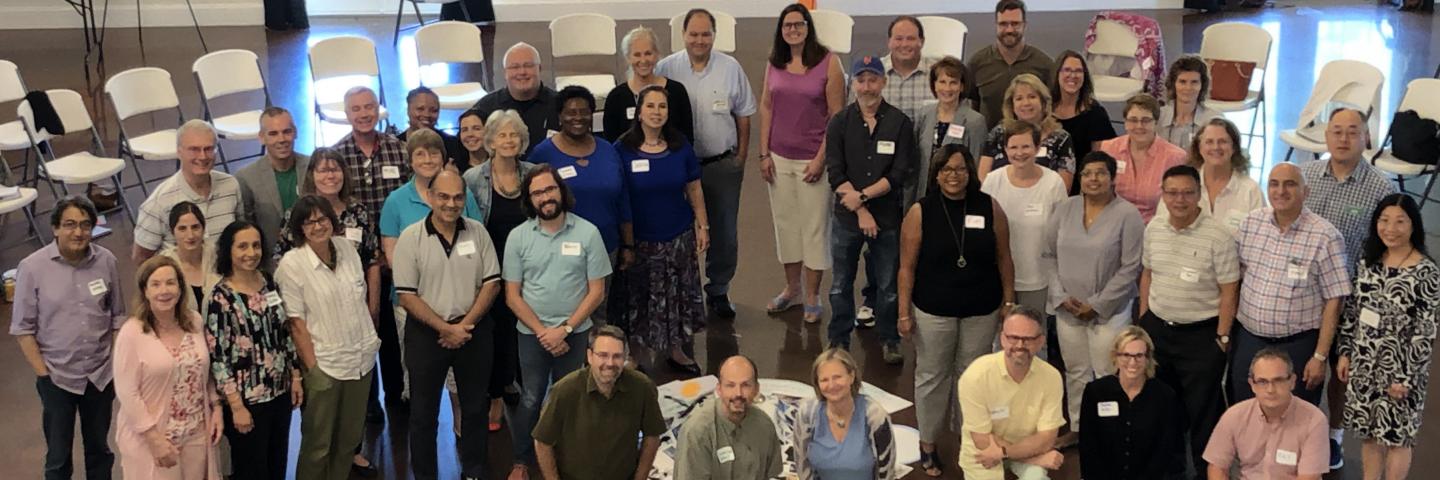“What I learned could be transformative in how I do things from hosting different kinds of meetings to structuring conversations differently. This is an investment, because it is learning techniques that are different than what I’m used to.” — Randy Bomer, dean of the College of Education
Can UNT’s academic leaders awaken to different ways of being in leadership together? Can we move beyond individual agendas to processes of co-learning and co-evolution that lead to wise action and change? Can that lead to greater student success? Increased enrollment? Better student retention? Stronger research collaborations? New innovative ideas, programs and initiatives?
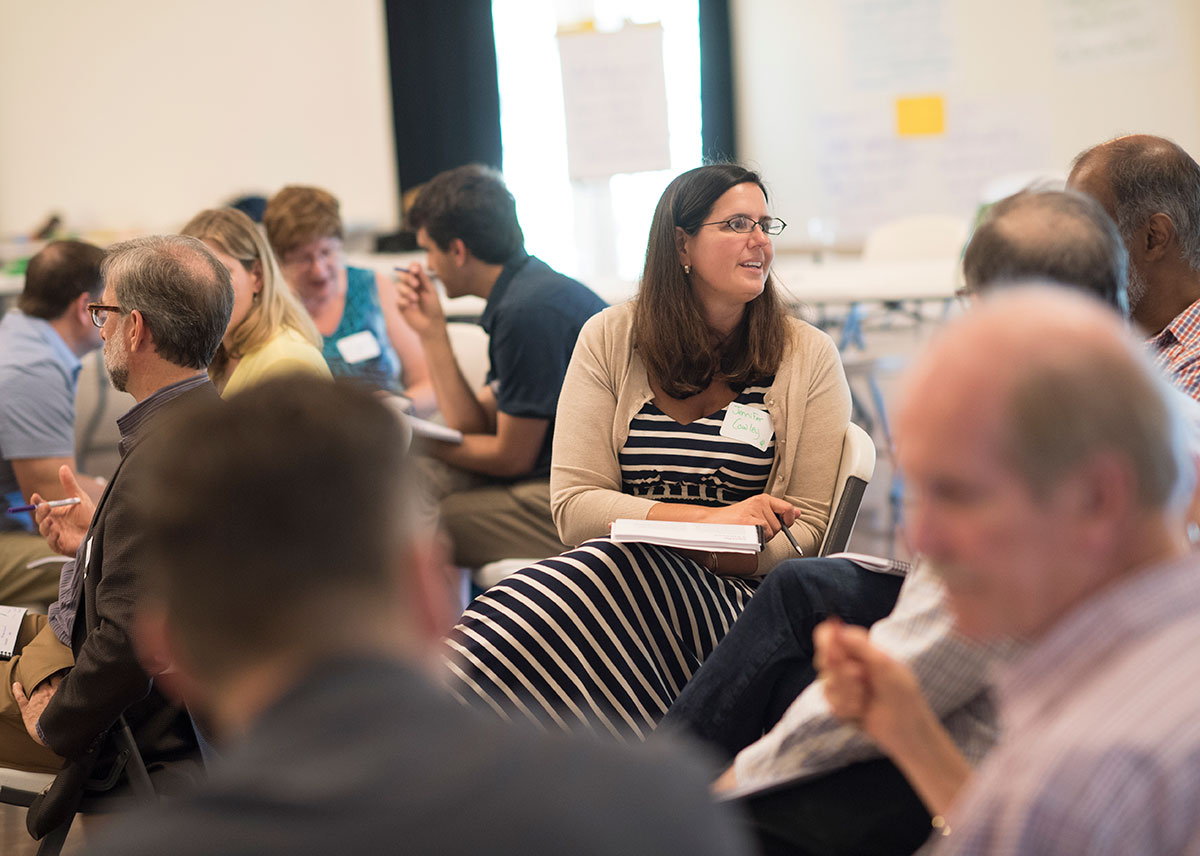
"Yes" many answered after participating in one of the Art of Participatory Leadership workshops, led by facilitators Chris Corrigan, Caitlin Frost and Tenneson Woolf.
Each year, the Provost's Office brings together groups of 40 academic leaders and faculty members to strengthen their leadership skills and learn new methods of achieving collaborative work. They participate in a three-day workshop designed to help them build on their leadership skills, add new techniques for facing increasingly complex work, and work more collaboratively to find new solutions. In addition, a group of 30 leaders engage in an Advanced Practice of Participatory Leadership program designed to deepen participatory skills.
Faculty or academic leaders interested in participating can reach out to Jamie.Moreno@unt.edu to learn more.
Reflections on the Art of Participatory Leadership
“… This session was engaging, reflective, and meaningful to me in so many ways. I look forward to using and participating in these methods both within my department as well as in the university community in the upcoming months.” — Brooke Nodeland, Assistant Professor of Criminal Justice
“The workshop supplied me with new techniques useful for making better decisions and engaging in more effective leadership." — Matthew Eshbaugh-Soha, Chair of Political Science.
Through the workshop, participants explored how to better communicate with their colleagues and partners as well as how to be better leaders through concepts including:
- The Art of Hosting is an approach to leadership that scales up from personal to the systemic using personal practice, dialogue, facilitation and the co-creation of innovation to address complex challenges.
- The Circle Way is an alternative infrastructure for collaborative conversations where the group comes together in the shape of a circle so that everyone can see and hear each other and adopts a group process for collaborative decision-making so everyone can experience sharing story, inviting diverse thinking and encouraging creative problem solving.
- Open Space Technology is designed to create time and space for people to engage deeply and creatively around issues of concern to them.
- Pro Action Cafe is an innovative collaborative methodology that helps move projects and questions to wise action.
- The Work is a powerful process designed to help individuals work directly and effectively with the beliefs and thoughts that keep them stuck, cause stress and limit the ability to think creatively and act wisely. The Work can help transform a person’s way of thinking.
- World Café is a powerful social technology for engaging people in conversations, offering an effective antidote to the fast-paced fragmentation and lack of connection in today’s world.
In addition to building leadership skills, the group of academic leaders leveraged the time together to tackle real issues facing them in their colleges, departments and classrooms such as how to grow enrollment, better help students stay in school to earn their degrees, find new sources of funding for graduate students and transform programs into nationally ranked or internationally recognized programs that business and industry want to support.
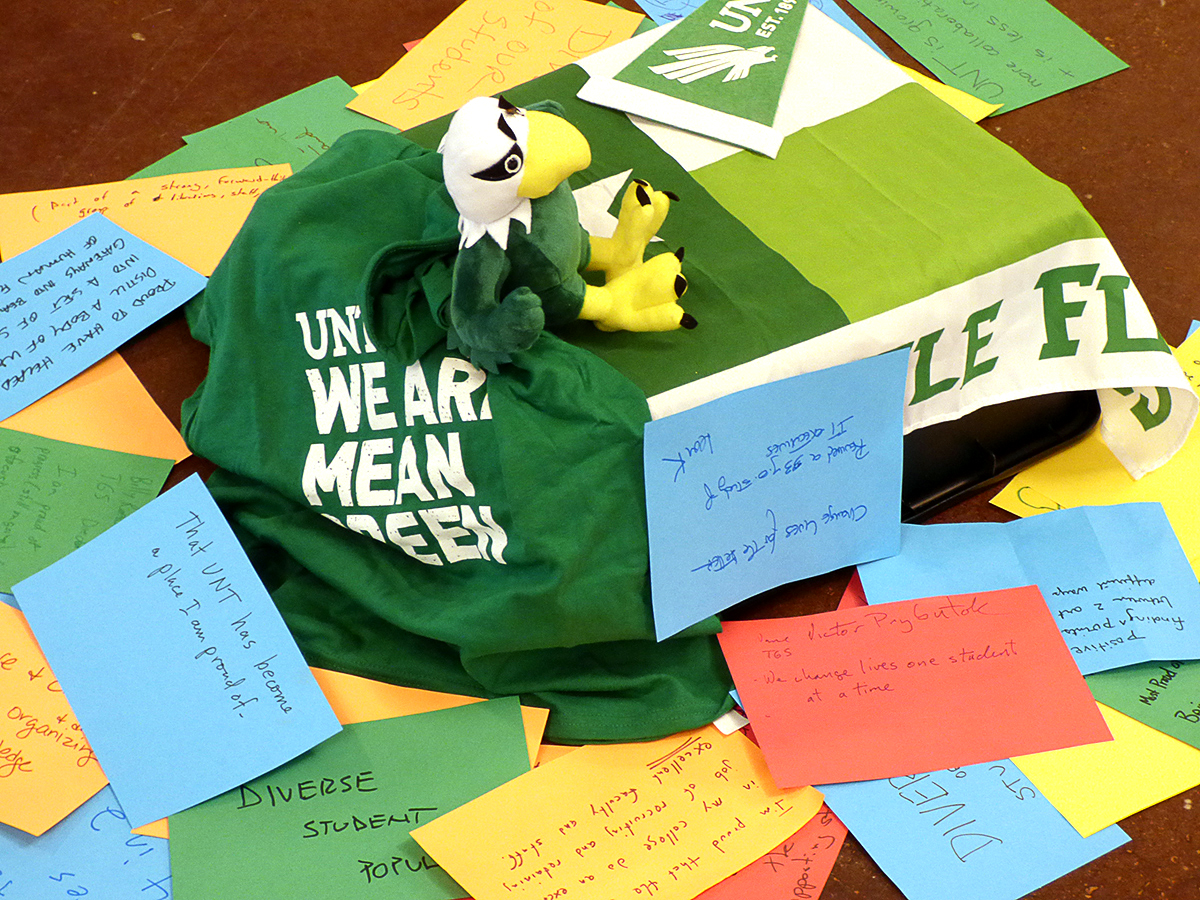 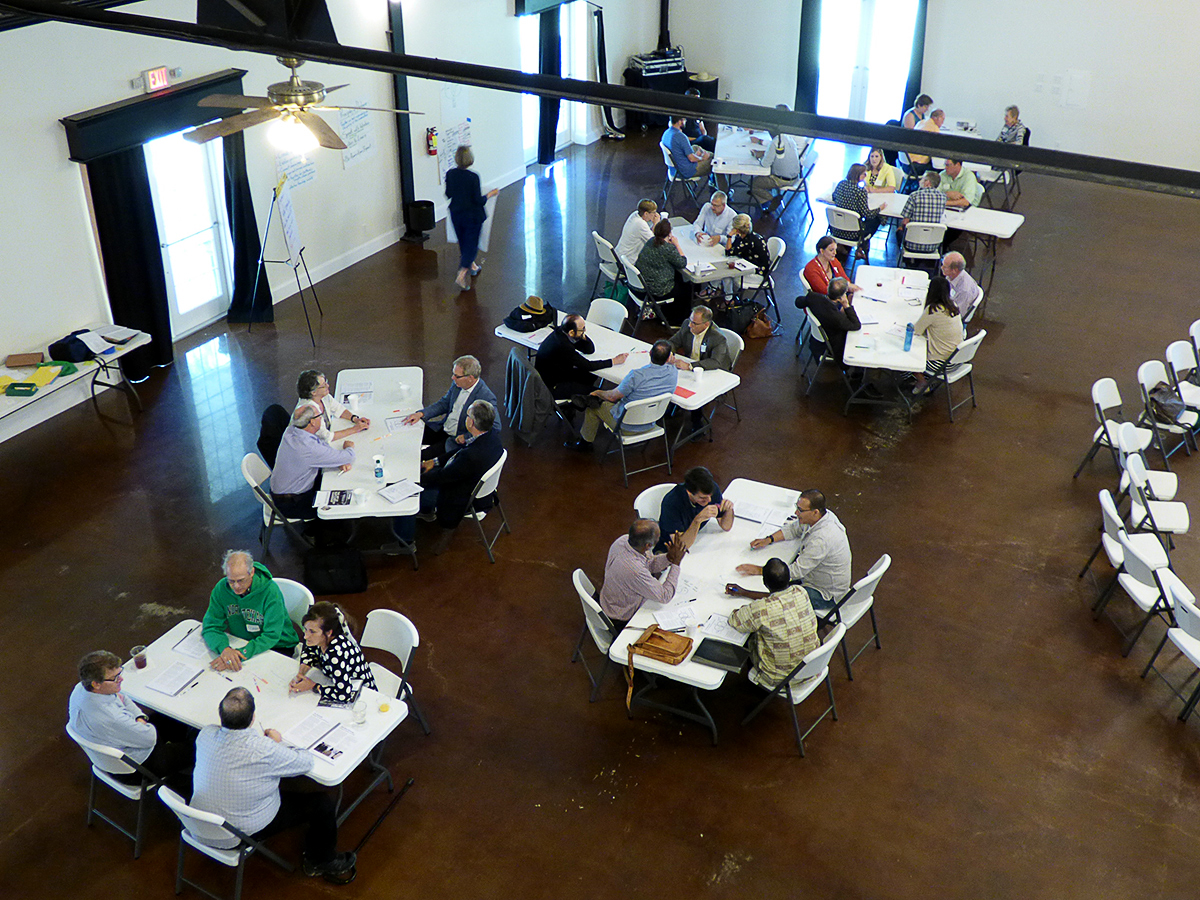 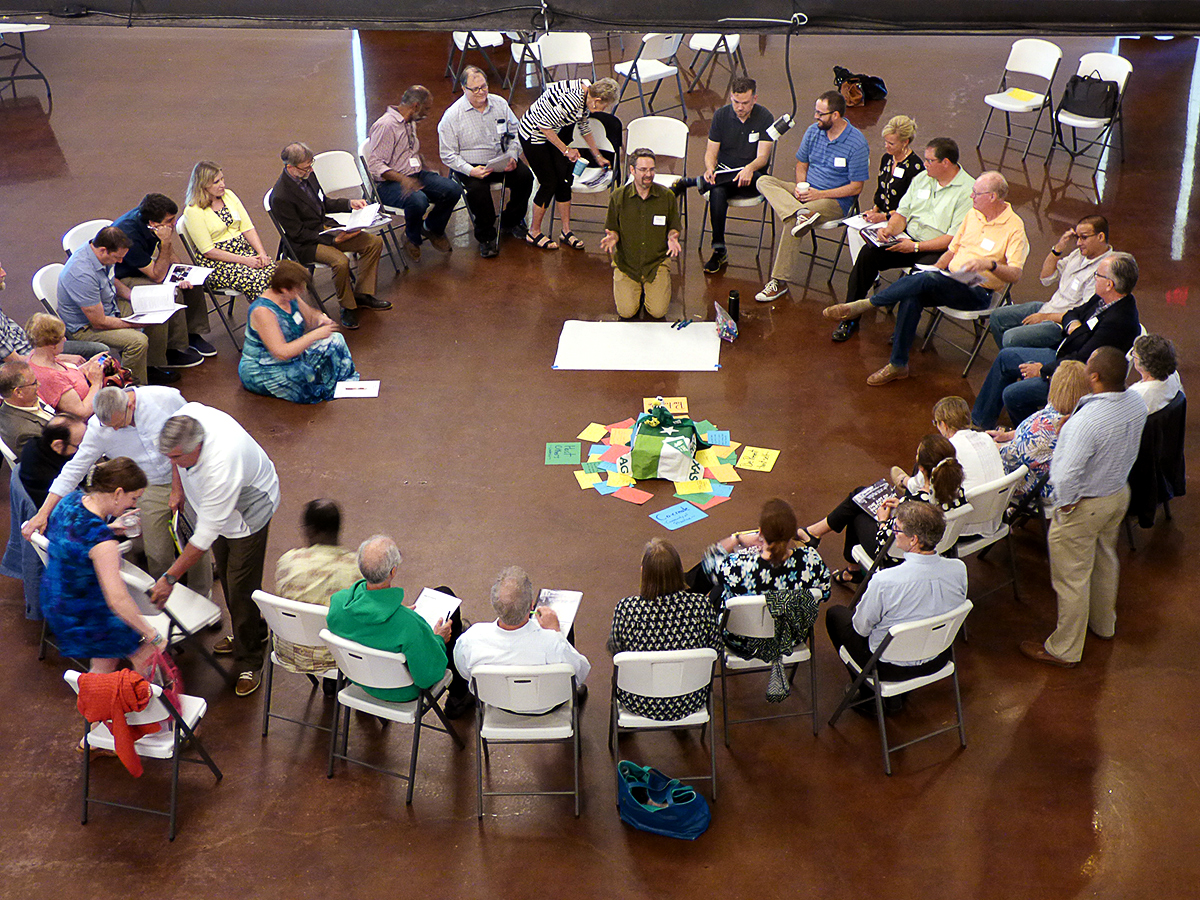
|
“There are crucial decisions facing the university, and these are some new alternatives to help us work better together to tackle the issues,” said Brian Collins, incoming chair of the Department of Public Administration and a UNT Leadership Fellow. “If we are not changing, then we are missing opportunities to innovate. There are lots of reasons to stay the course, especially in our nationally ranked program, but there are even more reasons to do things even better.”
Throughout the workshop, participants learned new tools to collaborate and think differently, and then they were asked to immediately put them into practice by engaging in conversations with each other in small groups. Participants also were challenged to think about:
- Are we asking the right questions?
- Are we using the right measures?
“We have a shared purpose, and it was very validating to interact with other departments and colleges to learn how they operate and solve problems. I gained insight into what types of approaches are used across campus that I might adopt to do better and strengthen my programs,” said Glenisson de Oliveira, dean of the Honors College and the Texas Academy of Mathematics and Science.
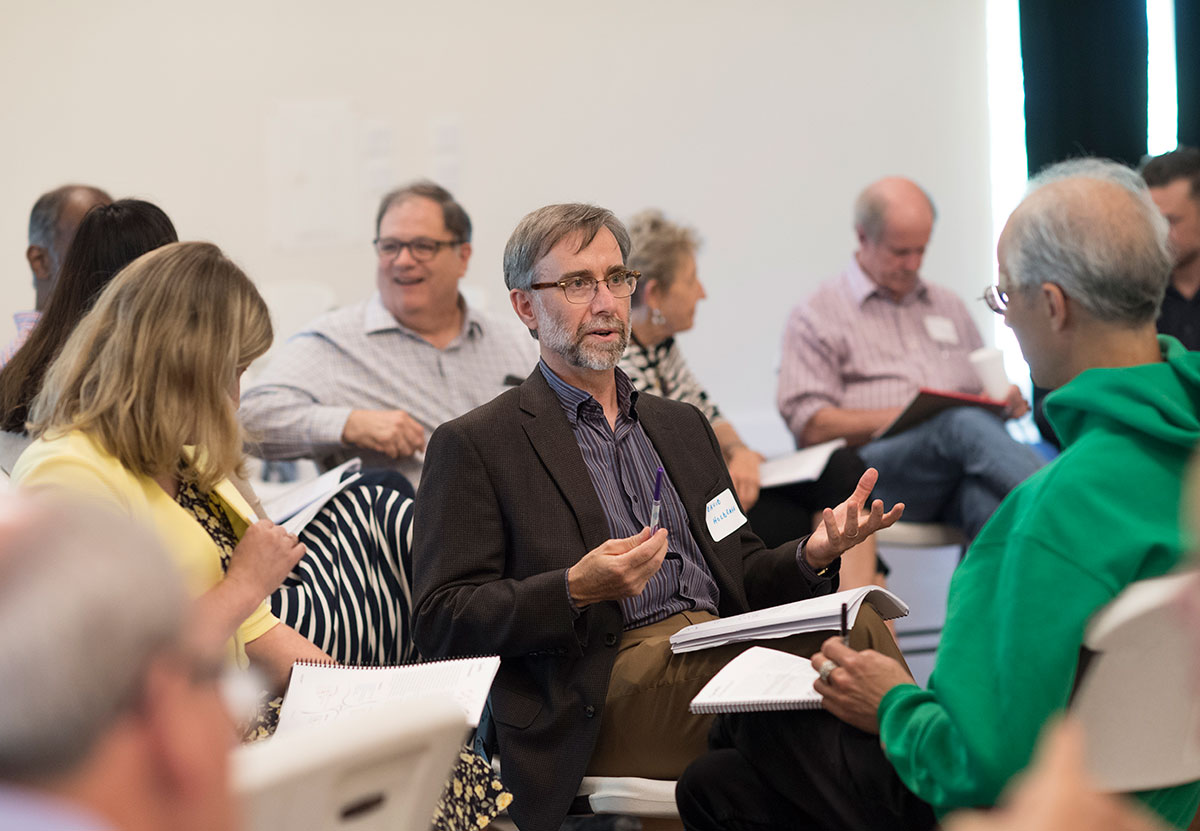 Jiangping Chen, professor of information science, agreed that the workshop was time well spent. “One of the most immediate changes for me will be how we hold meetings,” she said. “I was able to develop some new skills and am excited about some of the new ideas. I also didn’t know most of the people who participated so I had a good time learning from them and am taking away some new practices to try in my area.”
Jiangping Chen, professor of information science, agreed that the workshop was time well spent. “One of the most immediate changes for me will be how we hold meetings,” she said. “I was able to develop some new skills and am excited about some of the new ideas. I also didn’t know most of the people who participated so I had a good time learning from them and am taking away some new practices to try in my area.”
On the final day, the group of academic leaders divided into small groups to practice Pro Action Café techniques and coached each other in finding solutions on real projects. Several participants said they felt inspired by the intense rounds of idea sharing and brainstorming in the structured conversations designed to bring out creativity and set actions in motion.
“We haven’t just learned how to run a meeting,” said Ed Dzialowski, professor of biological sciences and a UNT Leadership Fellow. “We have developed some new ideas on how to draw people out and engage them differently. I think this will help us to come together differently, and I’m excited about what we can achieve.”

